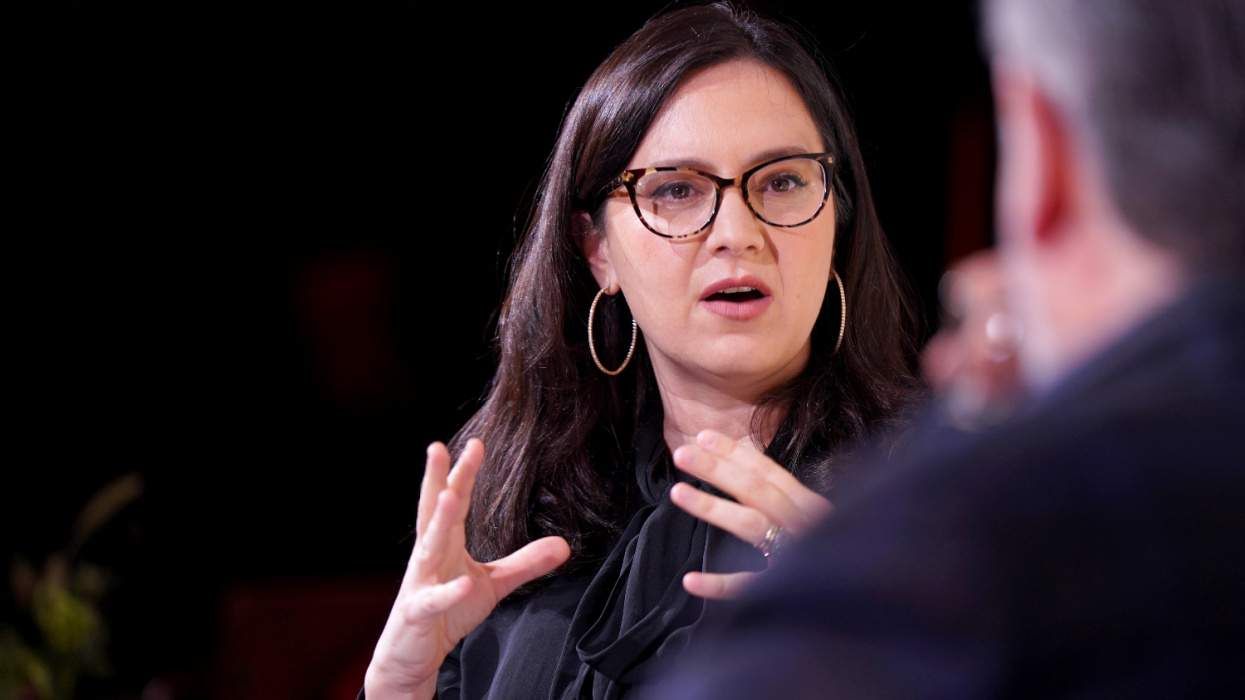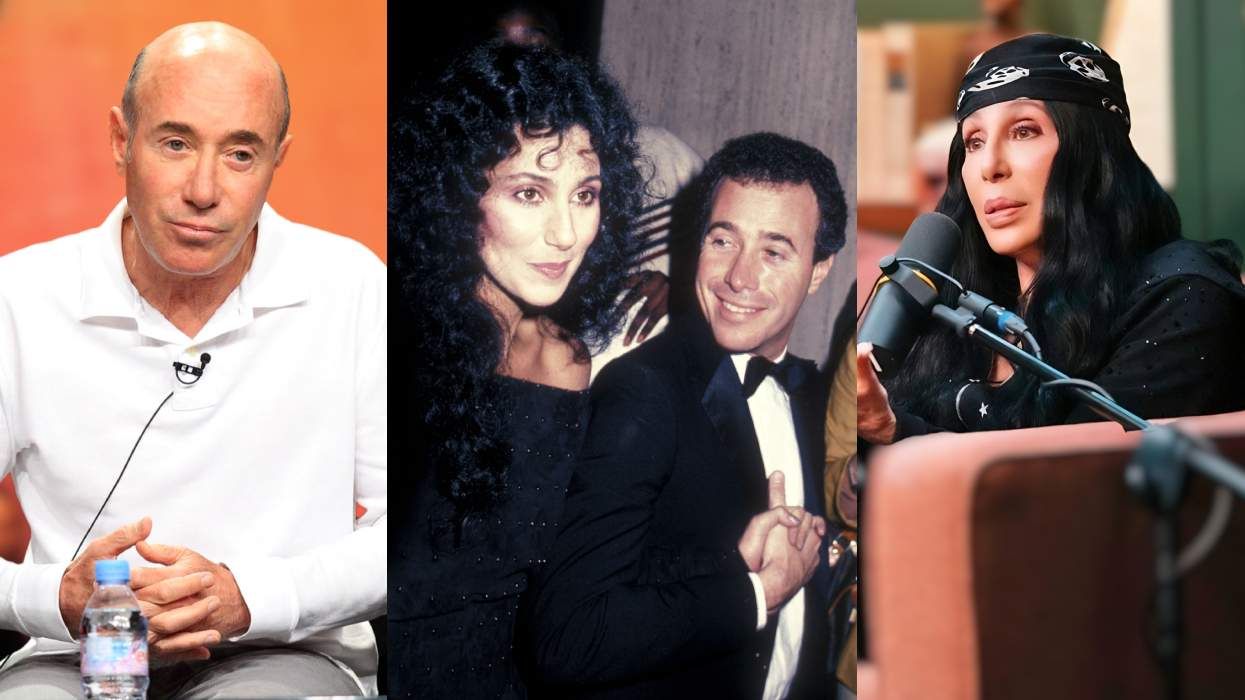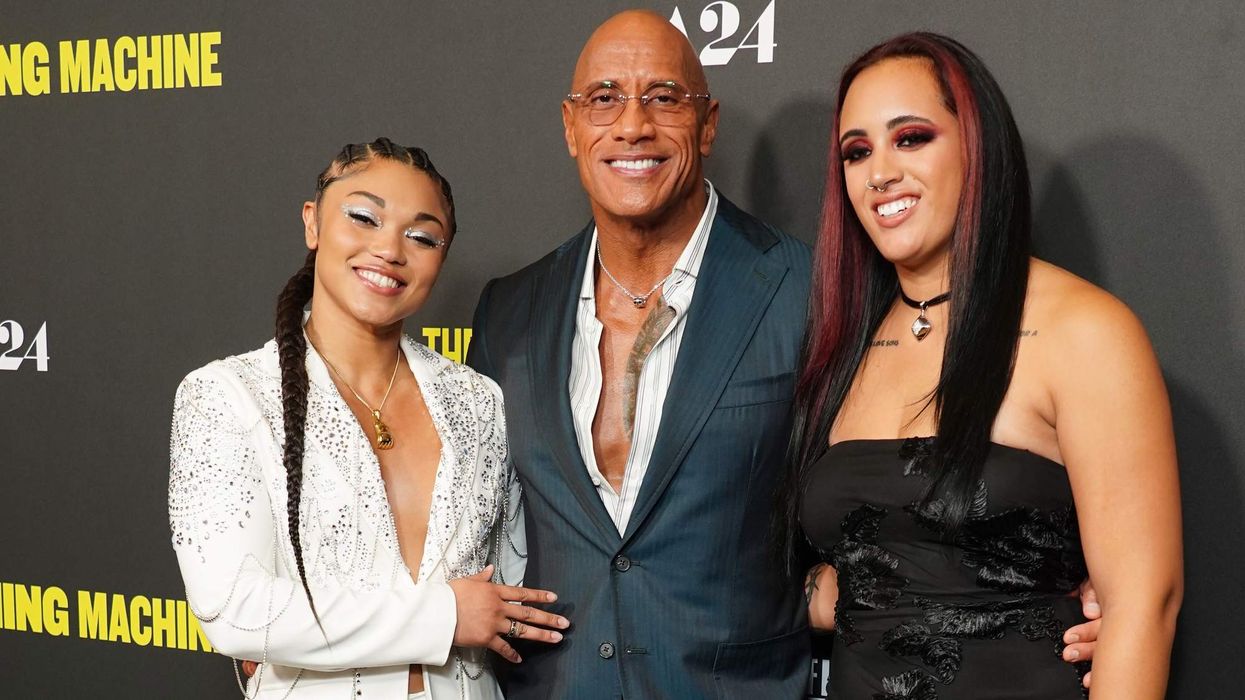"I know I'm not a man . . . and I've come to the conclusion that I'm probably not a woman, either." With those words and the subsequent pages of Gender Outlaw: On Men, Women, and the Rest of Us by Kate Bornstein, my entire view of gender was radically and irrevocably altered.
The implications of our gender, the expectations we put on it, are artificial -- they're man-made, if you will. Gender suddenly became something mutable, not tied to society's expectations or historical gender norms.
In recent years, the notion that gender doesn't exist as a simple binary of male and female has finally entered the public consciousness. Talking to Kate, I found that now in her 70s, she hasn't stopped engaging with her gender, or yours, and she hasn't stopped insisting that as life-defining as gender may be, you've got to also have a sense of humor about it all.
Case in point, Kate's memoir is titled A Queer and Pleasant Danger: The true story of a nice Jewish boy who joins the Church of Scientology and leaves twelve years later to become the lovely lady she is today.
"Gender is a playground," she says on this week's episode of LGBTQ&A. It's supposed to be fun. You can listen to the full interview with Kate below or click here to listen on your favorite podcast app.
Jeffrey Masters: You've been writing about gender and being nonbinary for almost 30 years. I'd forgotten that you weren't always embraced by the trans and larger LGBTQ community.
Kate Bornstein: I'm still not embraced by the larger LGBT and trans community. I think I'm celebrated as an elder. I feel very warmly about even people who are upset with me because you go, "Oh, isn't that sweet?" They're working as hard as they can and they do not see yet what I've been trying to say for quite a while, that there's more to gender than two.
JM: I'm surprised you say that because for so long your writing about gender as a spectrum was considered a theory, and today we talk about it as fact.
KB: More and more people do talk about gender as a spectrum, but when we get into the notion of a spectrum, that's still two-dimensional thinking. There's a third dimension of gender: imagination. This puts gender beyond male and female, and then if you really want to get tricky and talk about gender fluidity, then we're talking four dimensions because we have to add time.
People talk about gender as if it is unchanging over time, but we're always changing our gender, and the problem is people think gender is the same all the time for everyone.
JM: And your thinking on that has evolved, right? You used to write that everybody's gender was outside of a binary, but you've changed on that.
KB: Well, I still think that. It's paradoxical. Yes, everybody's outside the binary because the binary is a construct, but the truth is many, many people are binary-identified. That doesn't mean they're not outside the binary. It means they've made the decision to act and live and be in a binary.
JM: Because that is what is comfortable.
KB: Of course, and that I never had objections to. What I have objections to is that holding sway over people who don't want that.
JM: What is the argument against your work? You've said that you've been denounced over and over by the trans community.
KB: I take up a lot of space. What I say is assumed to be true for a whole lot of people, and it's not. I've tried to make that point, but that's not heard. So, "You're spoiling it for the rest of us" is a common problem in any area.
JM: Yet I do hear the younger segment of the population confirming everything you're saying and repeating it back.
KB: I agree. There's a large number of young folks that I just go, "Oh, baby, I love you so much. You are living the life I've always wanted to live." Remember the people we hang out with are not the majority of the people in the world. We've still got a long way to go.
There's an idea that trans is somehow monolithic. When I was coming out, when I was exploring all this stuff in the '80s, to be a real transsexual in those days, you needed a medical stamp of approval, which included hormones and surgery. Then you were a real transsexual.
The word transsexual was really excluding people, so we started using transgender to include anyone who was fucking around with gender at all.
The great stride that transgender people have made is that it is no longer tied to a medical decree. It doesn't need hormones, doesn't need surgery. So we've improved light years from when I was going through this.
JM: What do you think is next? What does the future of gender look like?
KB: The future of gender is its dissolution. The word nonbinary is heralding that.
The nature of the binary is the nature of a battlefield. It can't be anything else. That's what happens when you have either/or. Saying, "You're making more money per hour than I am," is crossing the line, and it's seen as an attack. Any kind of going to the other side is presumed as an attack. Binary is any phenomenon defined by two and two only components. What we have now is a polynary.
A polynary is any phenomenon defined by more than two elements. It's as simple as that, and the nature of a polynary is the nature of a playground. There's a possibility for coalition. There's a possibility for cooperation. There never was that in the binary.
JM: You transitioned many years ago in the binary sense, from male to female. Had you not done that, do you think you would've been able to say as definitively as you did, "I'm not a man. I'm not a woman"?
KB: I've thought about that. You think about what if, what if, what if. Gender expression and gender identity: two totally different things. My gender identity is not man, not a woman. My gender expression is "pretty girl." I like being pretty. I like being sexy. It's just so satisfying. I like to make people smile. I like to make people wink at me. I think that's just wonderful, and I can still do it as a cute little old lady.
But if I had gone for my gender expression in the '80s, the only place for me -- and this is where class enters into gender -- would have been on the street. I'm nonbinary. I'm not genderqueer. I'm not visibly trying to mess up the signals because my gender expression is girl. Because I was coming out of the middle class when I went through with my transition, I would have been able to continue working in phone sex, but that really didn't pay the rent. It was hard to find a job looking "not man, not woman."
Back then, the response to "not man, not woman" was "Well then, what are you?" And I'd say, "No, I'm not man. Not woman." Someplace in the Midwest, we did this back and forth for three or four minutes. The future of gender is when with that question, you go, "Oh. OK." That's the future of gender. It doesn't mean everybody is "not man, not woman." It just means, "Oh, I get it. Sure, no problem."
LGBTQ&A is The Advocate's weekly interview podcast hosted by Jeffrey Masters. Past guests include Pete Buttigieg, Laverne Cox, Miss Major Griffin-Gracy, and Roxane Gay.
Episodes are released every Tuesday.















